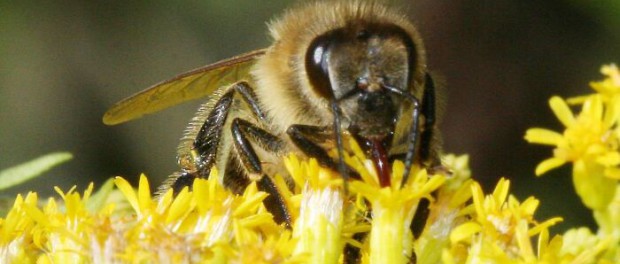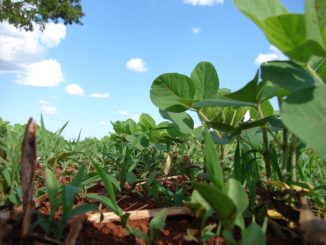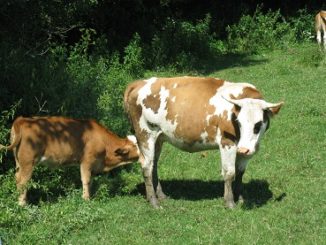
The UK’s National Farmers’ Union have been successful in their campaign for a so called emergency authorisation to use neonicotinoid-dressed seed for some overwintering oilseed rape crops.
This derogation of of the 2013 EU moratorium on neonicotinoids was granted by the minister behind closed doors on July 22. Conveniently this occurred on the day parliament went into recess, meaning that no debate was possible on the controversial move.
According to a press release on the NFU website
The NFU has secured the emergency use of neonicotinoid seed treatments providing much needed protection from the pest cabbage stem flea beetle for five per cent of the oilseed rape crop in England amounting to around 30,000ha.
The products which farmers will be able to have access to are Modesto (Bayer) and Cruiser OSR (Syngenta). The emergency use has been granted for 120 days. Discussions on the logistics of distributing the seed are underway.
ARC2020 contacted the environment ministry. A DEFRA spokesperson said: “We have fully applied the precautionary ban on the use of neonicotinoids introduced by the EU, and we make decisions on pesticides based on the science only once the regulators are satisfied they are safe to people and the environment.
“Based on the evidence, we have followed the advice of the UK Expert Committee on Pesticides and our Chief Scientist that a limited emergency authorisation of two pesticides requested by farmers should be granted in areas where oil rape crops [sic] are at greatest risk of pest damage.”
Friends of the Earth UK pollinator campaigner Paul de Zylva told ARC2020 that: “…ministers should hang their heads in shame,” arguing that there are 10 recent peer-reviewed studies that indicate a real threat to pollinator populations across Europe from neonicotinoids.
De Zylva’s letters to Defra ministers have gone unanswered for months and the question of derogations for neonicotinoids have been shrouded in a persistent veil of secrecy. Minutes of meetings of the expert committee on pesticides are no longer published, while as the Guardian reports, the NFU data supplied to DEFRA is supposedly commercially sensitive and thus remains confidential. “It’s ironic, but last week was National Pollinator Week. You wouldn’t have found out unless you stumbled across the two or three tweets that DEFRA put out.”
An article in The Guardian also accuses the UK government of gagging the Expert Committee on Pesticides (ECP), which was formerly the Advisory Committee on Pesticides (ACP) under the previous government. At the time of writing, the only committee document available for the ECP was an agenda for the committee’s first meeting on May 24. De Zylva argues that the ECP should remain independent to be credible. “DEFRA should not lean on its independent advisors,” he warns.
For now, however, the NFU is serving up its emergency authorisation story to the farming press, while the ministry is only responding to direct press enquiries. “It’s completely unacceptable for the Government to refuse to make the NFU’s application publicly available, and it even asked its own independent advisors not to publish the minutes and agenda of key meetings,” de Zylva explains. “The secrecy around this application will only fuel the public’s mistrust of government policy on pesticides.”

Despite NFU claims to the contrary, research on the effect of the neonicotinoid ban on oil seed rape shows relatively minimal impact.
Caroline Nicholls, AHDB Research Manager, said: “According to the latest survey results, we estimate that if neonicotinoid seed treatments had been available, the area that might have been planted would have been equivalent to a 5% increase over the area harvested in 2014.”
Photo licensed under the Creative Commons Attribution-Share Alike 3.0 Unported license.






1 Trackback / Pingback
Comments are closed.